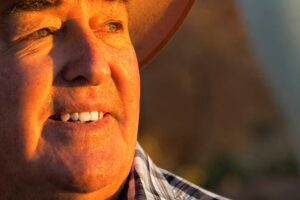
Following a series of closures at the beginning of the year and several Wānaka mothers being turned away from the local birthing unit, Health New Zealand Te Whatu Ora (HNZ) are adamant the facility is now fully staffed.
There is a 60% shortage of midwives in the South Island, and Rākai Kahukura — Wānaka Maternity Unit was not immune to the impacts of a healthcare crisis and as a result had to be closed earlier this year.
However, HNZ’s Southern chief midwife Karen Ferraccioli said the unit had never been closed and was only on “standby”.
“A unit is placed on standby if there are no core staff working there at the time. The units are still open to our community-based LMCs [lead maternity carers] and their back-ups to provide labour and birth care if required,” she said.
But several mothers told The Wānaka Sun that they were turned away from the unit for postnatal care because it was understaffed.
Wānaka midwife Emily Sancha said although the unit was available for birth or urgent assessments, mothers were turned away and unable to receive postnatal care when the unit was on standby.
Almost 400 Otago Central Lakes patients gave birth outside the region in 2024, including 115 in Dunedin and 281 in Southland.
The Wānaka Maternity Unit has hosted about 38 births and over 120 postnatal stays over the year that it has been open.
Jessica Pearson, of Wānaka, was one of several mothers who faced a stressful time during her birth as a result of the unit being on standby.
Due on December 26, she said she had been told by her midwife the unit was expected to be closed on certain days in December and January.
“It was quite stressful. Because I just didn’t really know where I was going to end up.”
Ms Pearson ended up needing to have an induced labour, which could only be done in Dunedin.
She was hoping to still be able to have postnatal care in Wānaka, but was told the unit was closed and she had to go to the Alexandra birthing unit, away from her partner and son.
“I felt comfortable having the birthing unit here but, in the end, I wasn’t even able to give birth there or stay there so I kind of just thought, ‘what was even the point?”’
Wānaka mother Cha Herniot had some complications and, after giving birth in Dunedin, she was not able to access postnatal care at home due to understaffing.
“We couldn’t go to the one in Wānaka for the same problem, they were understaffed, so we drove from Dunedin to Alexandra and we stayed a couple of days there.”
Figures provided by HNZ show in four years there has been a 51% increase in Otago Central Lakes babies born in Dunedin and Southland hospitals, as well as a 51% increase in Otago Central Lakes residents being admitted to Dunedin and Southland hospitals.
Wānaka’s population has nearly doubled since 2013 and there are now 18,000 people living in the Upper Clutha, causing a push at capacity for the local health system.
Wānaka mother Laura Puddy’s due date was in January and she was also told to expect that she may not be able to give birth in Wānaka or stay for postnatal care, resulting in uncertainty and stress.
“I think that all the way through your pregnancy, you’re told that time needs to be the calmest. So if you have stresses around that due date, it can alter your experience.”
Ms Puddy had to give birth in Dunedin due to complications almost a month before her due date but was then able to receive postnatal care in Wānaka from December 31.
She said the care she got in Wānaka was of a good standard, but it was difficult being unsure of whether she would be able to access it when needed.
“The nurses and the midwives in my postnatal care helped me immeasurably,” she said.
The unit now boasts a team of 12 midwives, including six community-based LMCs, who provide care at the unit.
Ms Ferraccioli said the standbys and refusals had happened due to unexpected roster gaps caused by sick and unplanned leave.
“The Wānaka Primary Maternity Unit was placed on standby once in April 2025 and three times in May 2025, each time for half a day. No families were affected, and if they were, they would have been transferred to our Queenstown or Alexandra units.”
Emily Sancha, of Wānaka Midwives, said she was pleased to finally have all the staff it needed on board as the unit completed its first year in town.
“We needed to fully staff the unit and with a national shortage of midwives it took a few months to get there, but we made it.”





